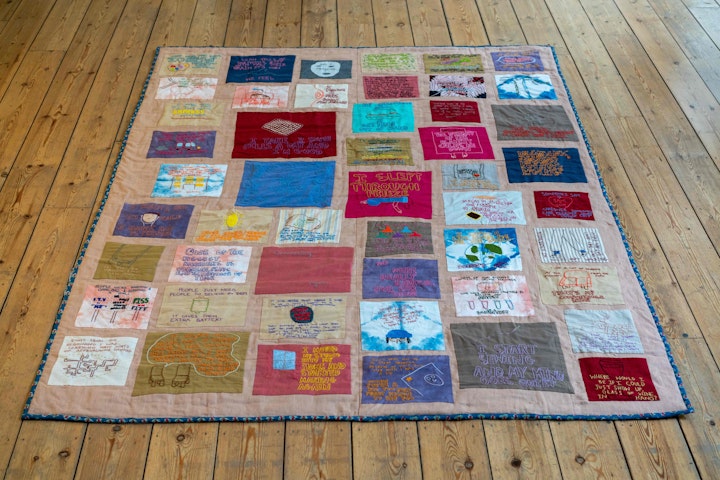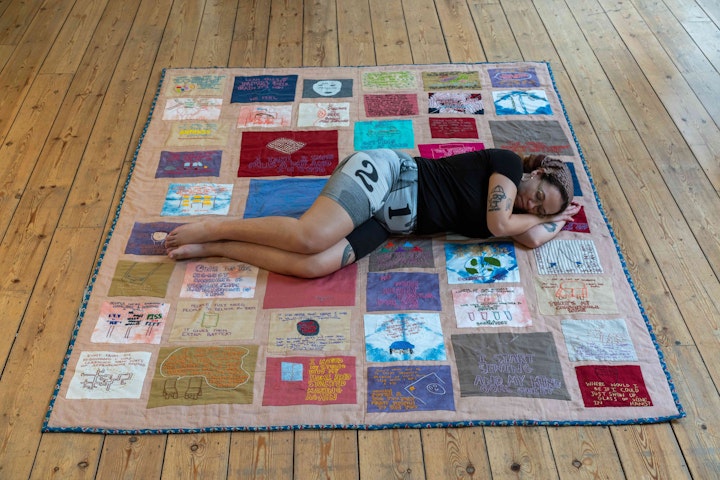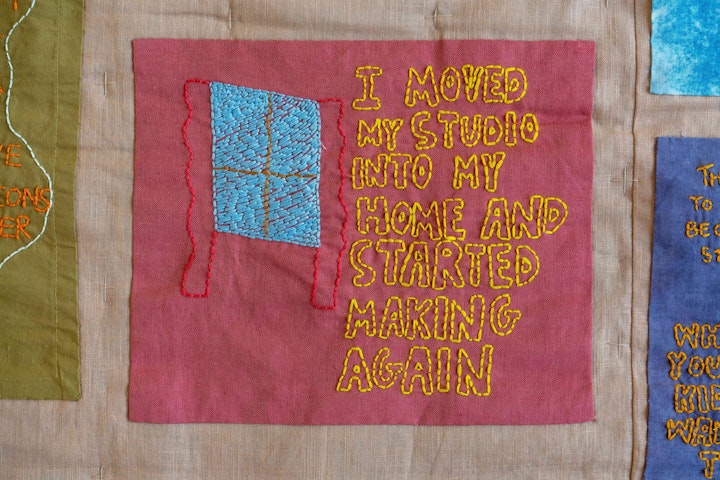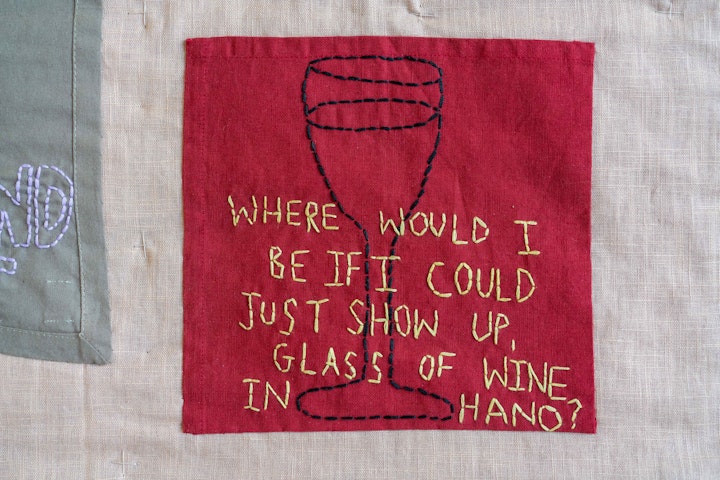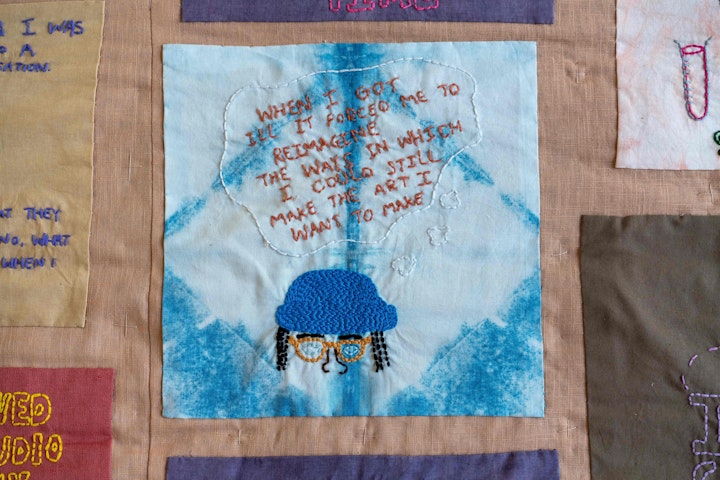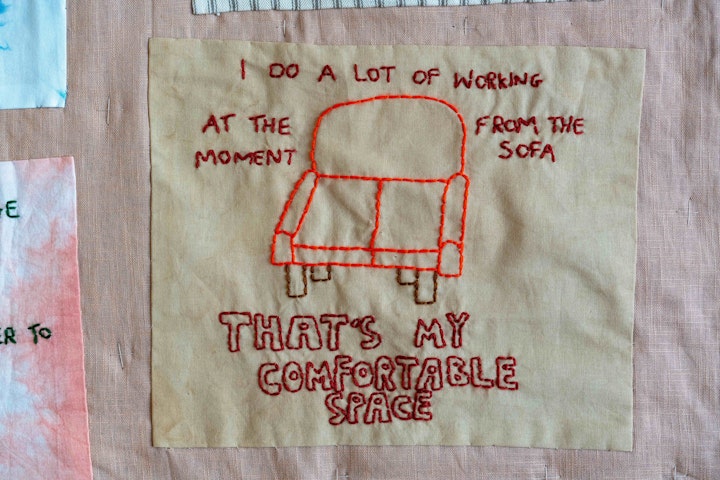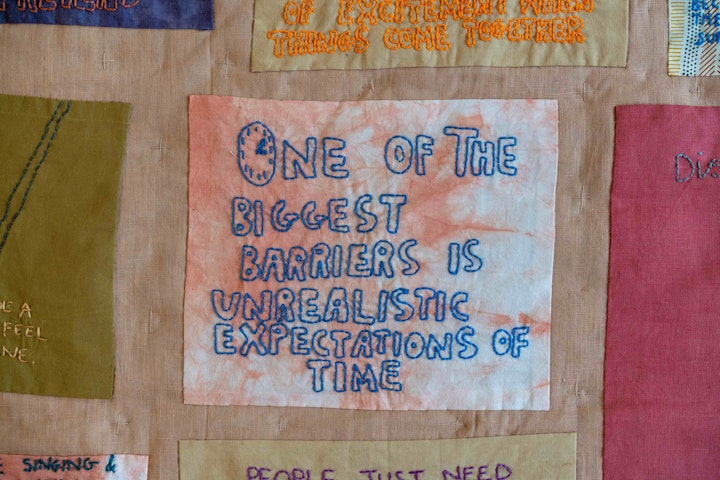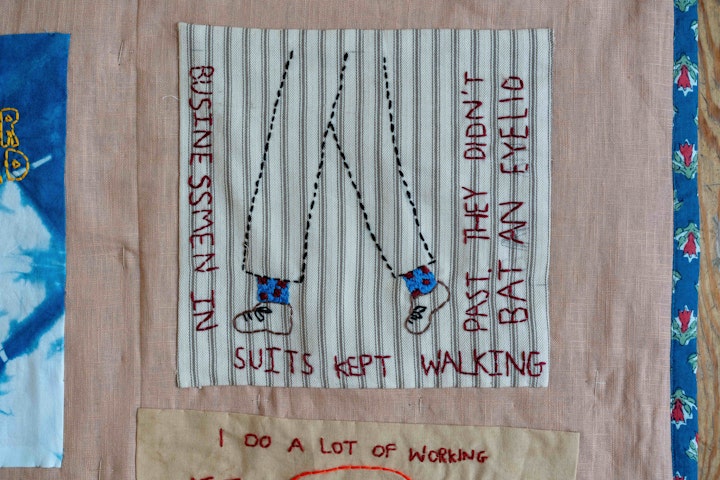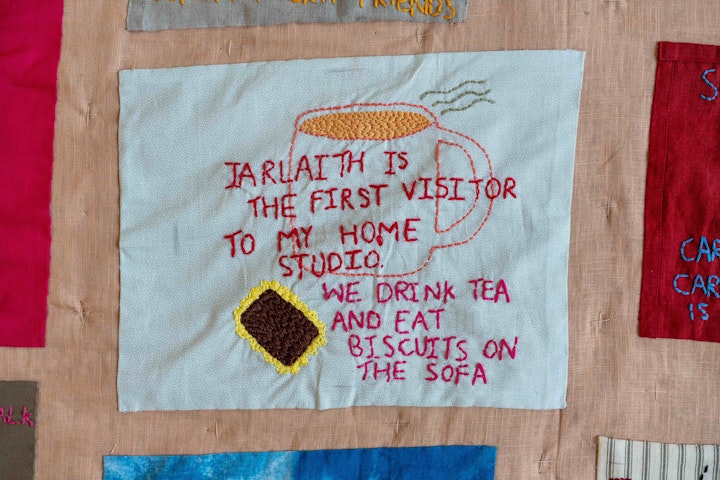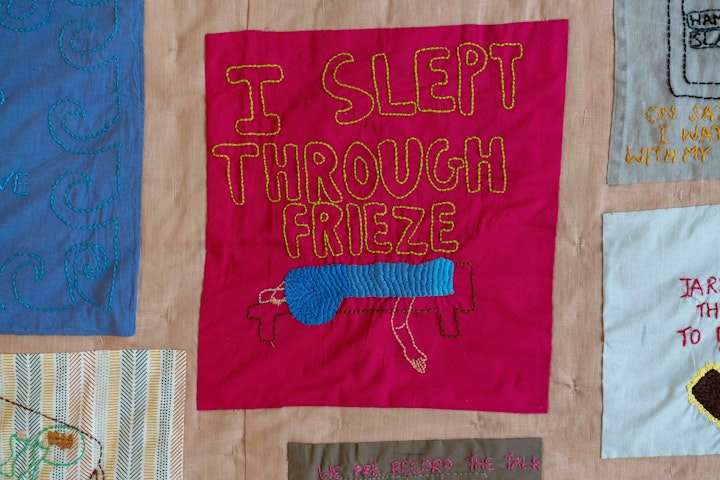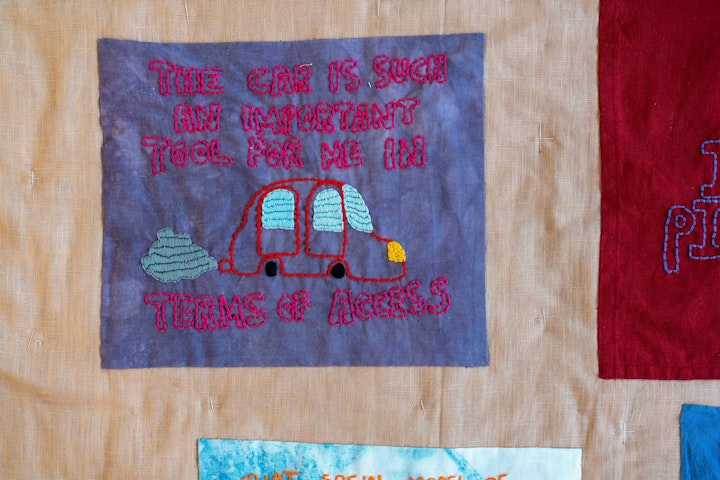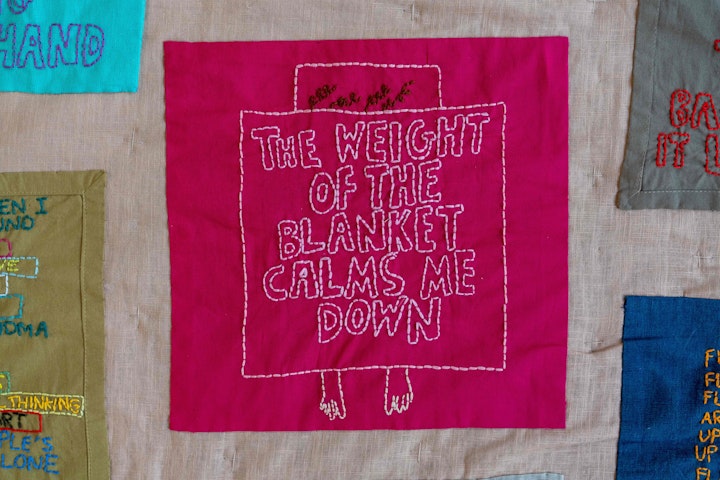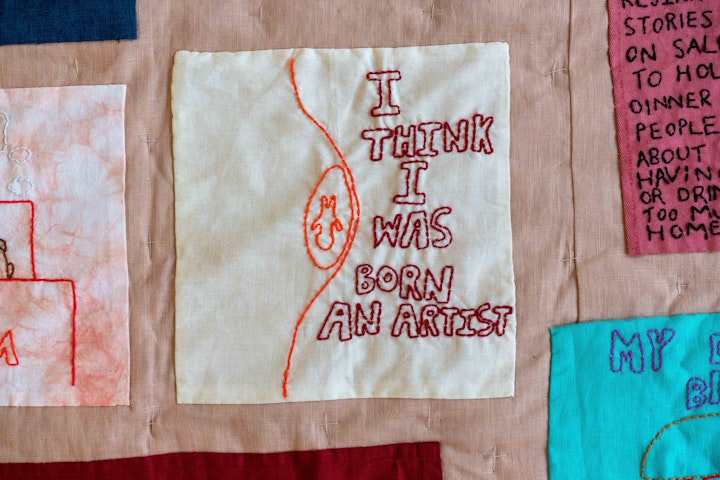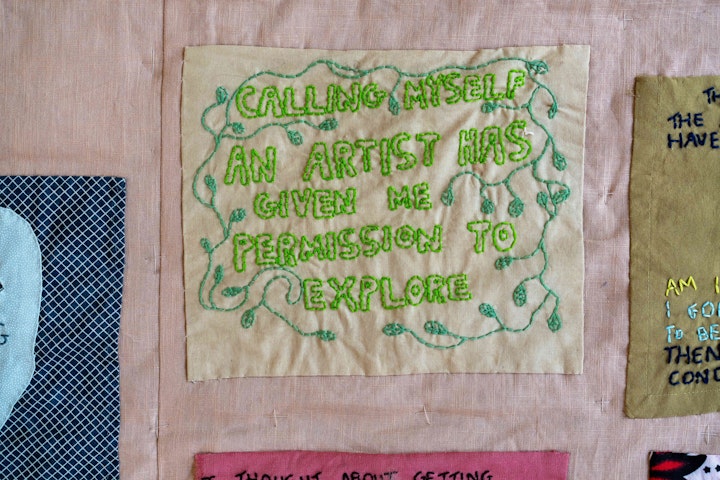Crip Quilt (2023)
Artworks
Crip Quilt (2023)
Crip Quilt, (2023) is a large-scale, patchwork, textile quilt translating the individual and collective experience of disability. With contributions from National Disability Art Collection and Archive, three new collated oral histories with disabled artists of colour and the artist’s own lived experience; each square in the patchwork relays a snapshot of a disabled artist’s life. While making the quilt, Jamila found that stitching aids symptoms of her disability, and her embroidered reflections took on a diaristic, confessional tone. Made on crip time, across 15 months, predominantly from the artist's sick bed, the process became therapeutic in nature.
The materiality of the quilt is weighted to reflect the use of weighted blankets to manage anxiety disorders and alleviate flare-ups and burnouts for neurodivergent people. The quilt will be accompanied by creative access adjustments of a soundscape, which is part audio description and part audio guide, and a moving image work for remote viewing.
Fabrication support by Divya Osbon
Oral histories from NDACA’s archive, recorded by David Hevey with Katherine Araniello, Sally Booth, John Kelly, Barbara Lisicki, Poppy Nash, Penny Pepper, Dolly Sen and Deborah Williams.
With new oral histories from Elora Kadir, Djofray Makumbu and Jameisha Prescod
Recorded with Lara Laeverenz at Studio Voltaire
Soundscape by Felix Taylor
Performed by Eve Esfandiari-Denney
Audio engineering of performance by Harry plomer
Audio description/guide written with Sophie Chapman
Documentation photos and filming by Katarzyna Perlak at Somerset house
Remote moving image film edited by Sophie Chapman
Commissioned through University Art London's 20/20 project with support from Freelands Foundation, Arts Council England, UAL, studio Voltaire and Somerset house
